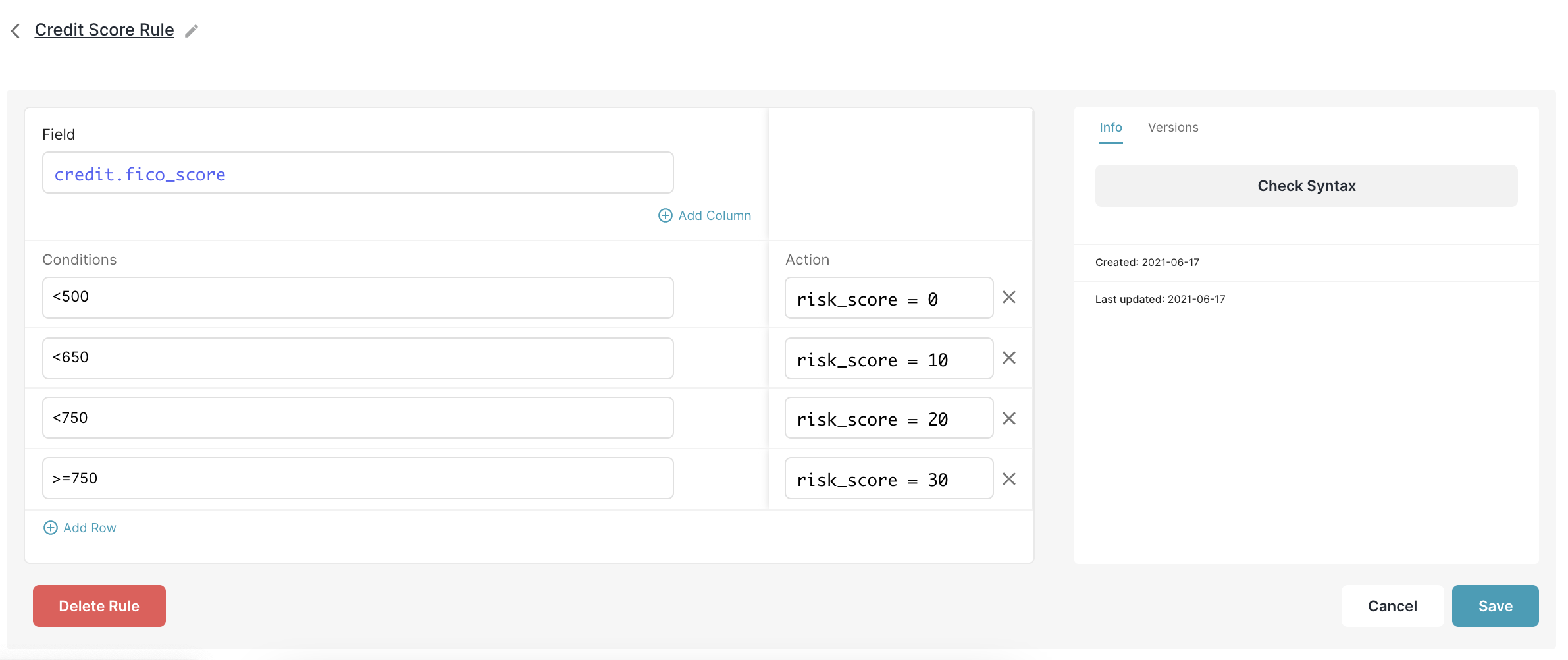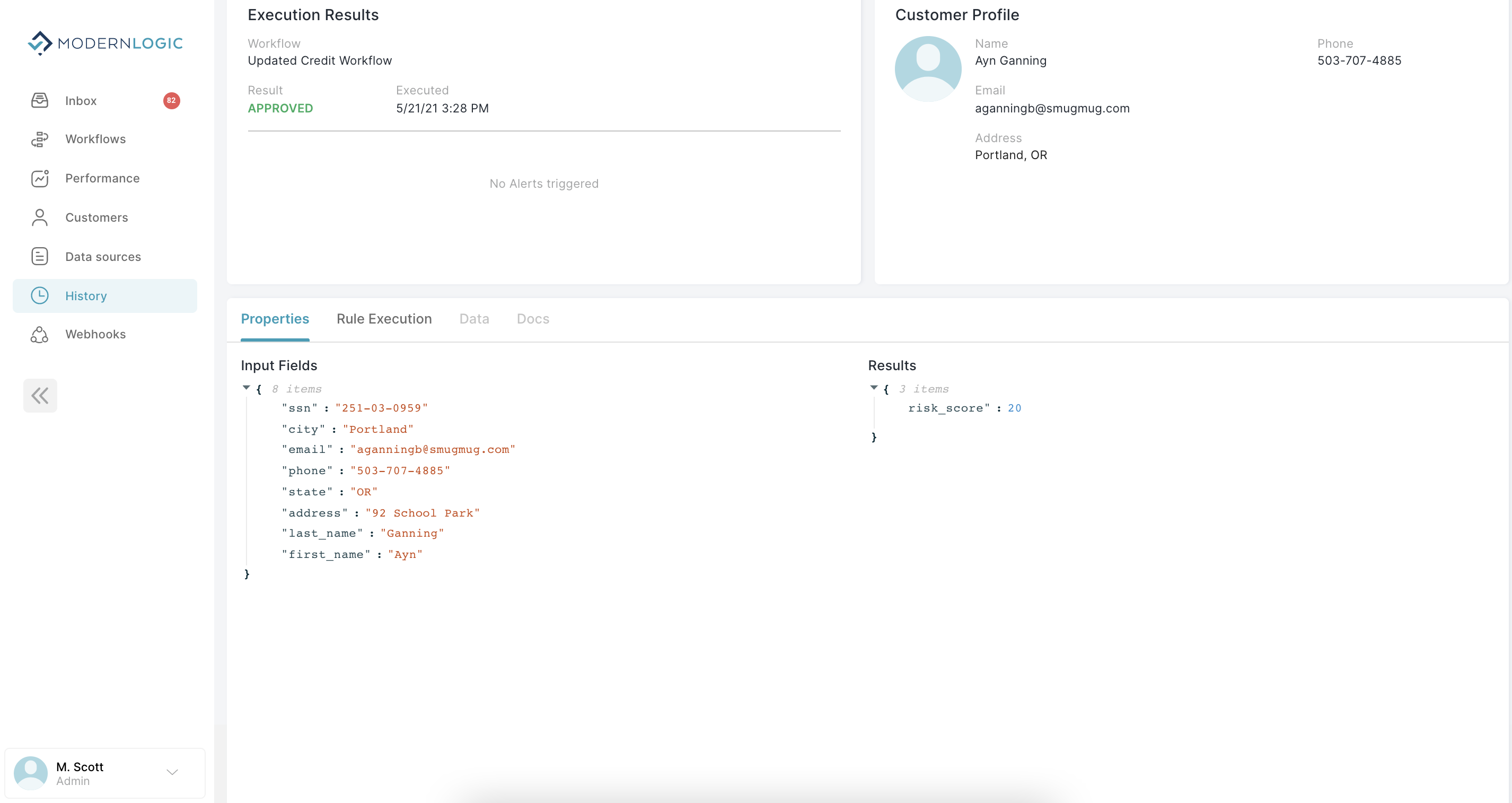Scores and Custom Variables
Every time your Workflow runs, it will return:
- Result (Approve, Reject, Investigate)
- Custom Variables (optional) such as score, risk_tier, etc
For more complex workflows, these Custom Variables are a crucial component.
As an example, picture a fintech company that wants to offer a line of credit to its customers during onboarding. Their Workflow will need to evaluate the relative riskiness of each customer, which will be stored as risk_score. The Workflow will also need to return a Custom Variables, which we'll call dollar_limit
Note that we can have multiple Custom Variables, they can be adjusted as the Workflow runs, and even set based on other Custom Variables.
Example: Creating the risk_score Variable
risk_score VariableIn any Action or Then cell, you can start typing the name of a new variable. In this case, we'll use risk_score. Make sure you pick something unique. No need to remember what you pick - your variable will be available under autocomplete in all subsequent rules.
In this example, we're using a simple Decision Table (learn more under Rule Types ) and in each Action cell, we're setting risk_score using the = sign.

Example: Updating the risk_score Variable
risk_score VariableOnce you've saved your rule creating the risk_score variable, you can access it in all your subsequent rules. In any Then or Action cell, just start typing risk_score and pick the variable from the Autocomplete drop down.

To alter this Custom Variable, simply set it equal to something else. For example risk_score = risk_score + 1
Example: Finding the risk_score in Execution Results
risk_score in Execution ResultsYou'll learn more about how to run your Workflow on the next page. But anytime a Workflow with a Custom Variable is Executed, you'll see the Custom Variables in the Results section of the Execution Record. Click on the History Tab and pick an Execution, to see an example.

Updated almost 3 years ago